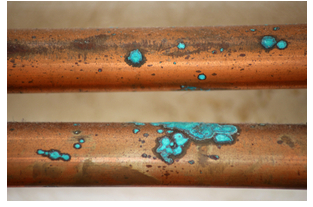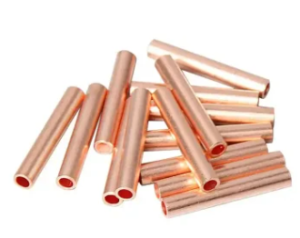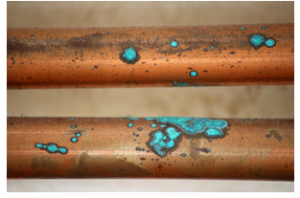Copper pipes have been a popular choice for plumbing systems for many years. Understanding the properties of copper can help you to make informed decisions about the selection of piping materials for your plumbing project, so let’s take a look at some of the advantages of using copper for pipework:
Durability
Copper pipes are known for their exceptional durability. They can withstand a wide range of temperatures, pressures and environmental conditions, making them suitable for both residential and commercial plumbing systems. With proper installation and maintenance, copper pipes can last for decades.
Corrosion resistance
Copper has innate corrosion-resistant properties. It doesn’t rust or corrode easily, which ensures the integrity of plumbing systems over time. This resistance reduces the likelihood of leaks and pipe failures.
Heat conductivity
Copper is an excellent conductor of heat. This makes it ideal for when heat needs to be transferred quickly and efficiently, such as in hot water supply lines. Copper pipes quickly transfer heat, contributing to energy efficiency.
Ease of installation
Copper pipes are relatively easy to work with due to their malleability. They can be bent, shaped and soldered to fit specific plumbing layouts, minimising the need for complex fittings and joints. Copper pipe fittings are available from companies such as https://watkinspowis.co.uk/products/copper-pipe-fittings-and-press-systems/.
Recyclable
Copper is a recyclable material, which means it can be reused or recycled at the end of its life.
Disadvantages of copper pipe
Cost
Copper pipes are more expensive compared to piping materials such as plastic. The cost of the labour involved in installation can also be higher, making it less economical for some projects.
Potential for pinhole leaks
Copper pipes may be susceptible to developing pinhole leaks over time. These leaks can be challenging to detect and repair.
Expansion and contraction
Copper pipes can expand and contract with temperature changes, potentially leading to noise issues as pipes rub against walls or other surfaces.
In conclusion, copper pipes offer numerous advantages in terms of durability, corrosion resistance, and thermal conductivity; however, they come with higher upfront costs and potential disadvantages such as susceptibility to pinhole leaks.






Leave a Reply